According to Florida Law: What Must Be Aboard a Vessel Explained Clearly
Florida is known for its beautiful waterways, attracting millions of boaters each year. To ensure the safety and enjoyment of all who use these waters, the state has established laws regarding what must be aboard a vessel. Vessel owners and operators are required to comply with these regulations, which are aimed at promoting safe boating practices and reducing incidents on the water.
One of the main components of Florida's boating laws involves mandatory onboard safety equipment. The required equipment varies depending on the size of the vessel, but may include items such as life jackets, fire extinguishers, sound-producing devices, and navigation lights. The goal is to ensure proper preparation for any emergencies that may arise while navigating Florida's waterways.

Key Takeaways
- Mandatory safety equipment is required aboard vessels in Florida
- The law's provisions depend on vessel size, with life jackets often among the necessary items
- Familiarize yourself with Florida state legal requirements for safe and legal boating
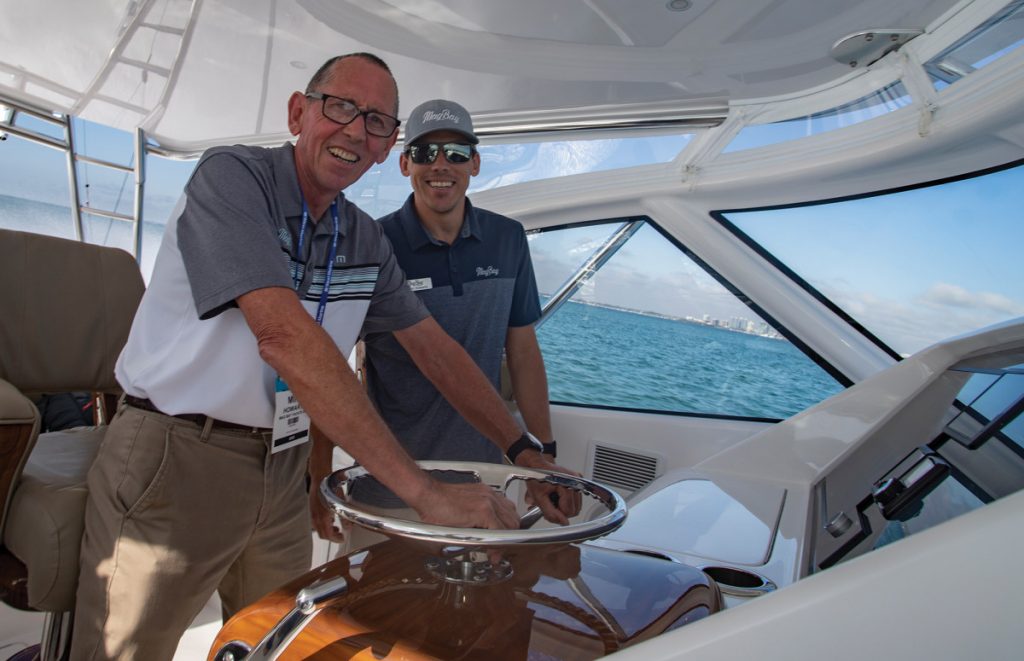
Understand Florida's Vessel Law
Key Definitions
In the state of Florida, it is essential to know some key definitions regarding vessel laws to ensure safe and lawful boating experiences. According to Florida Statutes, a vessel is defined as every description of watercraft, including non-displacement craft and seaplanes, used or capable of being used as a means of transportation on water. The law also highlights the requirements for operating a vessel with a motor of 10 horsepower or greater.
Important Terminology
To comply with Florida law, there are certain requirements that must be met when operating a vessel. Some important terminologies related to these requirements are:
- Personal Floatation Devices (PFDs): Florida law mandates that every boat must have at least one U.S. Coast Guard-approved PFD per person onboard. It is not just a legal requirement but crucial for ensuring safety during emergencies or accidents on water (source).
- Fire Extinguisher: Vessels 16 to 26 feet in length must have one USCG-approved B-1 type fire extinguisher onboard, except for outboard-powered motorboats less than 26 feet long if constructed in a manner that will not allow gas fumes to accumulate. Boats with built-in fuel tanks, inboard engines, or compartments where portable fuel tanks may be stored are subject to this requirement (source).
- Boating Safety Education: Florida law requires individuals born on or after January 1, 1988, to complete a boating safety education course and obtain the necessary documentation to operate a vessel with a motor of 10 horsepower or greater (source).
It is crucial for boat owners and operators in Florida to understand the key definitions and important terminology regarding vessel laws. Ensuring compliance with these regulations will promote a safe and enjoyable boating experience for all.
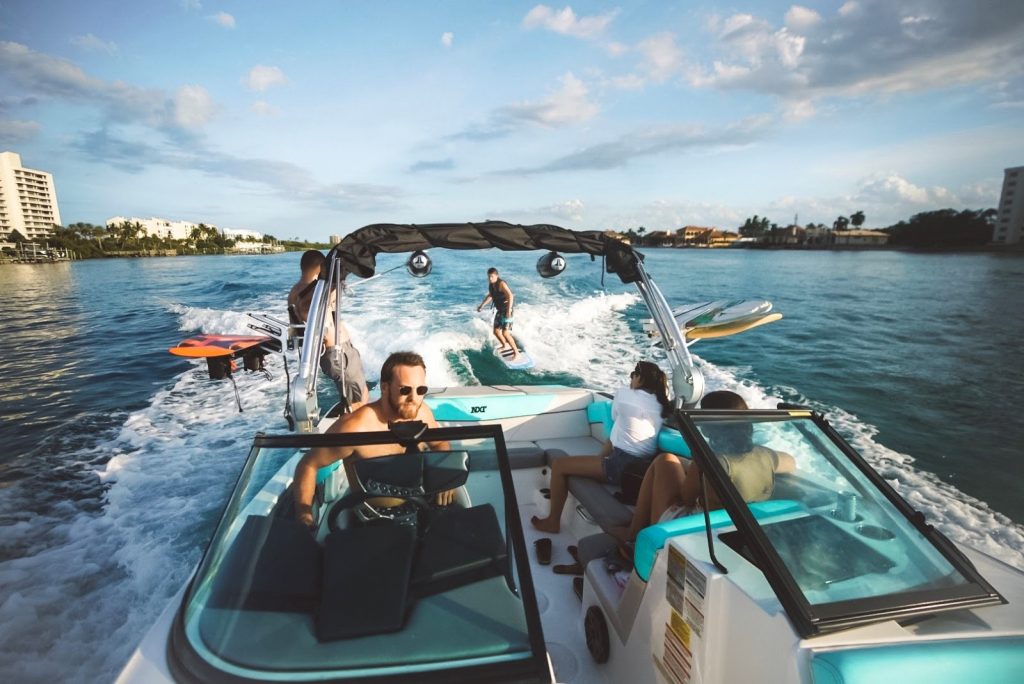
Florida Vessel Requirements
Florida has specific laws and regulations in place to ensure the safety of those aboard vessels. According to the Florida Statutes 327.395, a person born on or after January 1, 1988, must have a boating safety education identification card to operate a motorized vessel with 10 horsepower or more.
Every vessel must be equipped with essential safety gear, depending on its size and intended use. The Florida Fish and Wildlife Conservation Commission (FWC) provides a comprehensive list of equipment required for various vessel sizes.
Class A (up to 16 feet):
- Personal flotation devices: an approved Type I, II, III, or V PFD for each person aboard
- A sound-producing device, such as a whistle or horn
- Visual distress signals for vessels operating on coastal waters
- Properly functioning navigation lights when underway between sunset and sunrise
- A throwable Type IV PFD for boats over 16 feet
Class 1 (16 to 26 feet):
- All equipment required for Class A
- One B-I fire extinguisher, in vessels with an inboard engine, permanently installed fuel tanks, or enclosed spaces
- An anchor and line suitable for the vessel size
For water skiers, every person skiing or aquaplaning must wear an approved Type I, II, or III PFD. Inflatable PFDs are prohibited for this activity. Additionally, while a vessel is underway, every person under the age of 6 must wear an approved Type I, II, or III PFD.
If a vessel has a built-in fuel tank using gasoline, it should be equipped with a functional fire extinguisher. The capacity and quantity of fire extinguishers required depend on the boat's size and specifications.
It is essential to comply with Florida's vessel requirements to ensure the safety of everyone on board and other people in the water. Proper equipment and adherence to these regulations can help prevent accidents and create a safer boating environment for everyone.

The Role of the Florida Fish and Wildlife Conservation Commission
The Florida Fish and Wildlife Conservation Commission (FWC) is a state government agency in Florida responsible for managing and regulating the state's fish and wildlife resources, as well as enforcing related laws. Established in 1999 and headquartered in Tallahassee, the FWC plays a crucial role in ensuring the conservation and proper management of Florida's diverse ecosystems.
As part of its mandate, the FWC oversees the safety requirements for vessels operating in Florida's waterways. This includes setting guidelines and regulations for necessary onboard safety equipment. Enforcement officers from the FWC work diligently to ensure compliance with these regulations to protect Florida's boaters, wildlife, and environment.
The FWC carries out its mission through a number of divisions, including Fish and Wildlife Research Institute, Hunting and Game Management, Freshwater Fisheries Management, and Law Enforcement. Each division focuses on a specific aspect of conservation and resource management to ensure a holistic approach to protecting Florida's natural resources and recreational opportunities.
Overall, the Florida Fish and Wildlife Conservation Commission is an essential authority in the state's efforts to preserve its unique fish and wildlife resources while providing a safe and enjoyable environment for residents and visitors to explore and appreciate Florida's natural beauty. By enforcing vessel safety laws and promoting conservation practices, the FWC remains a vital contributor to the longevity and prosperity of Florida's ecosystems.
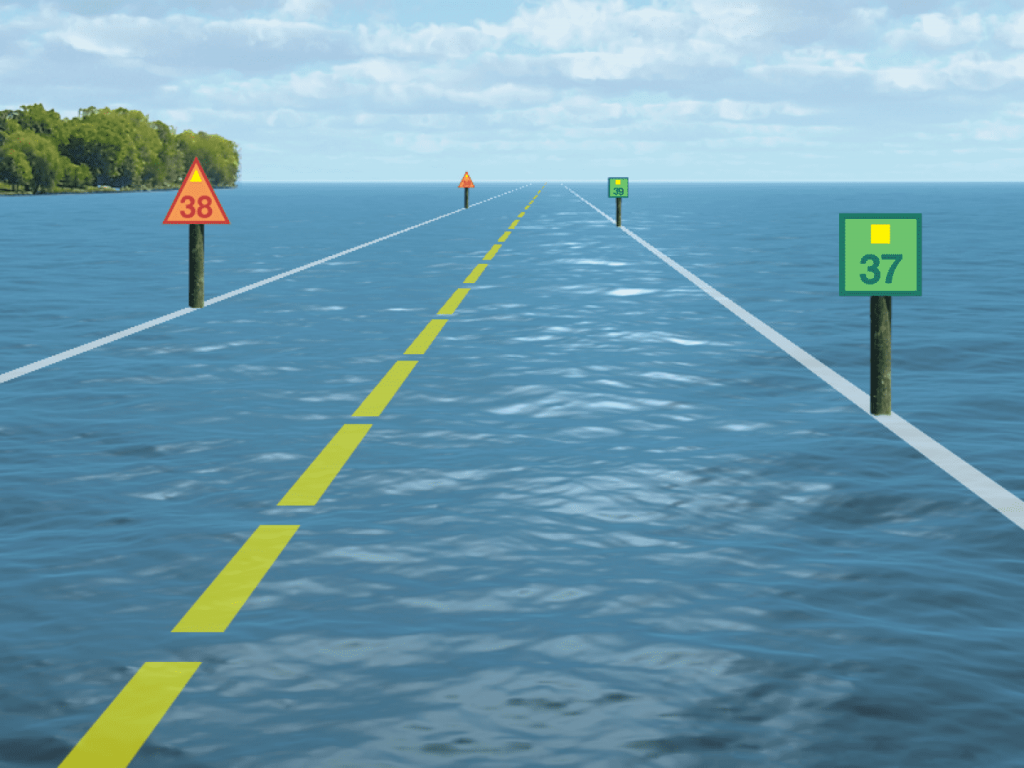
Navigating Laws and Regulations
In Florida, boating laws and regulations are designed to ensure the safety of those operating vessels on the water. Both federal and state laws play a significant role in governing watercraft activities. The Florida Fish and Wildlife Conservation Commission (FWC) is tasked with enforcing these regulations, while the U.S. Coast Guard maintains federal oversight when it comes to navigation rules.
To legally operate a motorized vessel in Florida, boaters must abide by specific requirements put in place by state legislation. For instance, individuals born on or after January 1, 1988, must possess a valid boating safety education card from a course approved by the FWC or the National Association of State Boating Law Administrators. This card must be kept in their possession while operating the boat.
It is critical for boat operators to understand the U.S. Coast Guard Navigation Rules, which provide guidelines to prevent collisions and ensure the safe navigation of vessels. These rules are applicable to all boats, regardless of size, and must be followed along with Florida's state-specific requirements.
Florida boating laws also dictate the minimum safety equipment that must be aboard a vessel. The necessities vary depending on the size and class of the boat. For example, recreational boats between 16 and 26 feet in length require certain minimum safety equipment, such as personal flotation devices, fire extinguishers, navigation lights, and a sound-producing device like a whistle or horn.
It is essential for boaters to adhere to both federal and state laws while operating their vessels on Florida's waterways. Familiarizing oneself with the U.S. Coast Guard's navigation rules and Florida's boating regulations will help to ensure a safe and enjoyable experience on the water, while also promoting continued respect for the state's maritime environment.

Understanding Licensing and Registration
In Florida, it is essential for boat owners to be aware of the licensing and registration requirements for their vessels. The Florida Fish and Wildlife Conservation Commission oversees these regulations to ensure the safety and proper operation of boats on public waters.
The first step for boat owners in Florida is to obtain a Florida Certificate of Registration and validation decal. This is mandatory for operating a vessel legally on public waters in the state. There are a few exceptions to this rule; non-motorized vessels less than 16 feet in length, non-motorized canoes, kayaks, racing shells, rowing sculls of any length, and vessels used exclusively in private lakes and ponds do not require registration. A Florida Certificate of Registration serves as proof of vessel ownership and must be renewed annually.
Boat owners must also display their registration numbers on the vessel. Registration numbers should be clearly visible on both sides of the boat and placed towards the front. This is a requirement to help law enforcement identify and track vessels in case of any incident.
While there isn't a specific boating license in Florida, boat operators born on or after January 1, 1988, are required to obtain a Boating Safety Education Identification Card. To acquire this card, individuals must complete a NASBLA-approved boater education course. This card, along with a valid photo ID, must be carried when operating a boat in Florida waters.
Florida boat registration can be completed through the Florida Department of Highway Safety and Motor Vehicles. Boat owners must establish proof of ownership, which can be done by submitting documents like an executed bill of sale, a builder's contract, a manufacturer's statement of origin, a federal marine document, or any other document acceptable to the FLHSMV.
In summary, boat owners in Florida must pay close attention to the state's licensing and registration requirements. Obtaining a Florida Certificate of Registration, displaying registration numbers on the vessel, and ensuring compliance with boating safety education laws are crucial to a vessel's legal operation on public waters.
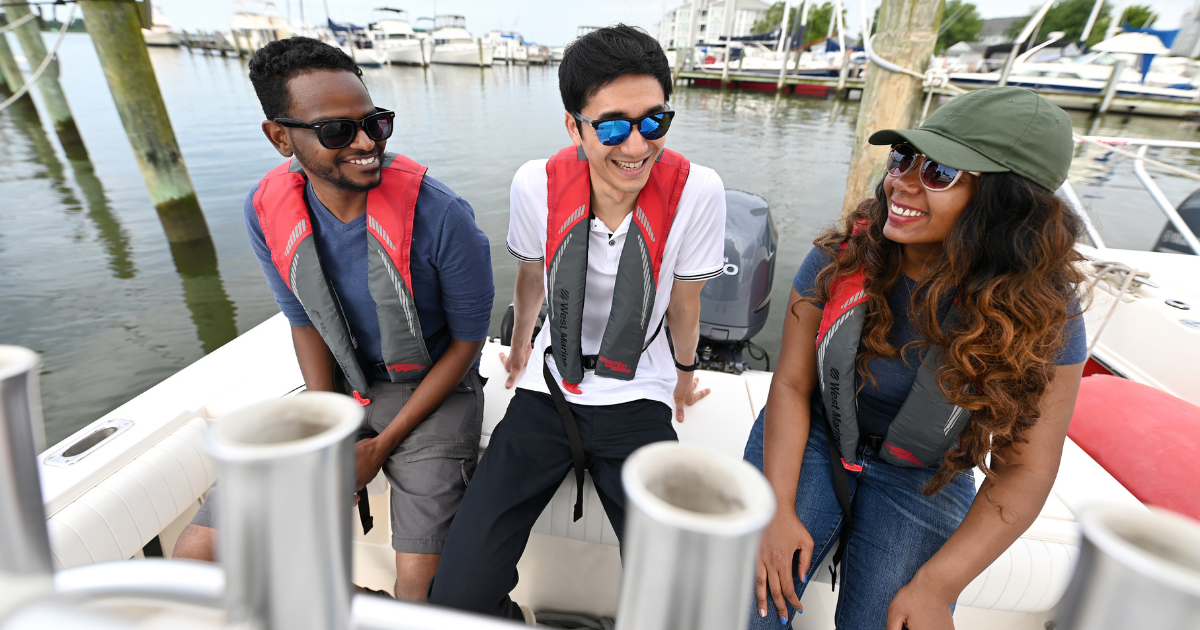
Boating Safety Courses
In Florida, boating safety courses are essential for individuals who wish to operate a vessel in the state. As per the Florida Statutes, individuals born on or after January 1, 1988, must obtain a Boating Safety Education ID Card and a boater education card.
The safety courses are provided by the National Association of State Boating Law Administrators (NASBLA) and the State of Florida. These courses cover a range of topics, including boat handling, equipment, navigation, and safety regulations. They are available in various formats such as classroom courses, online courses, and home study programs.
NASBLA-approved courses are recognized by Florida and other states, ensuring that boaters can operate vessels in different regions without needing to re-take the safety course. Completing a mandatory NASBLA/State of Florida-approved boater education course is the first step to obtaining a boating safety education ID card and a boater education card.
Both classroom courses and online courses have their advantages. Classroom courses offer real-time interaction with an instructor and fellow students, while online courses offer flexibility and convenience for those with busy schedules. It is essential to choose a safe boating course that suits individual needs and preferences.
Upon successful completion of the boating safety education course, participants receive a boater education card and a Boating Safety Education ID Card. These documents must be carried on board the vessel at all times while operating it. Failure to do so may result in fines and penalties.
In summary, Florida law requires boaters born on or after January 1, 1988, to complete a NASBLA/State of Florida-approved boater education course and obtain appropriate documentation. By doing so, individuals contribute to a safer boating environment for all those enjoying Florida's waterways.
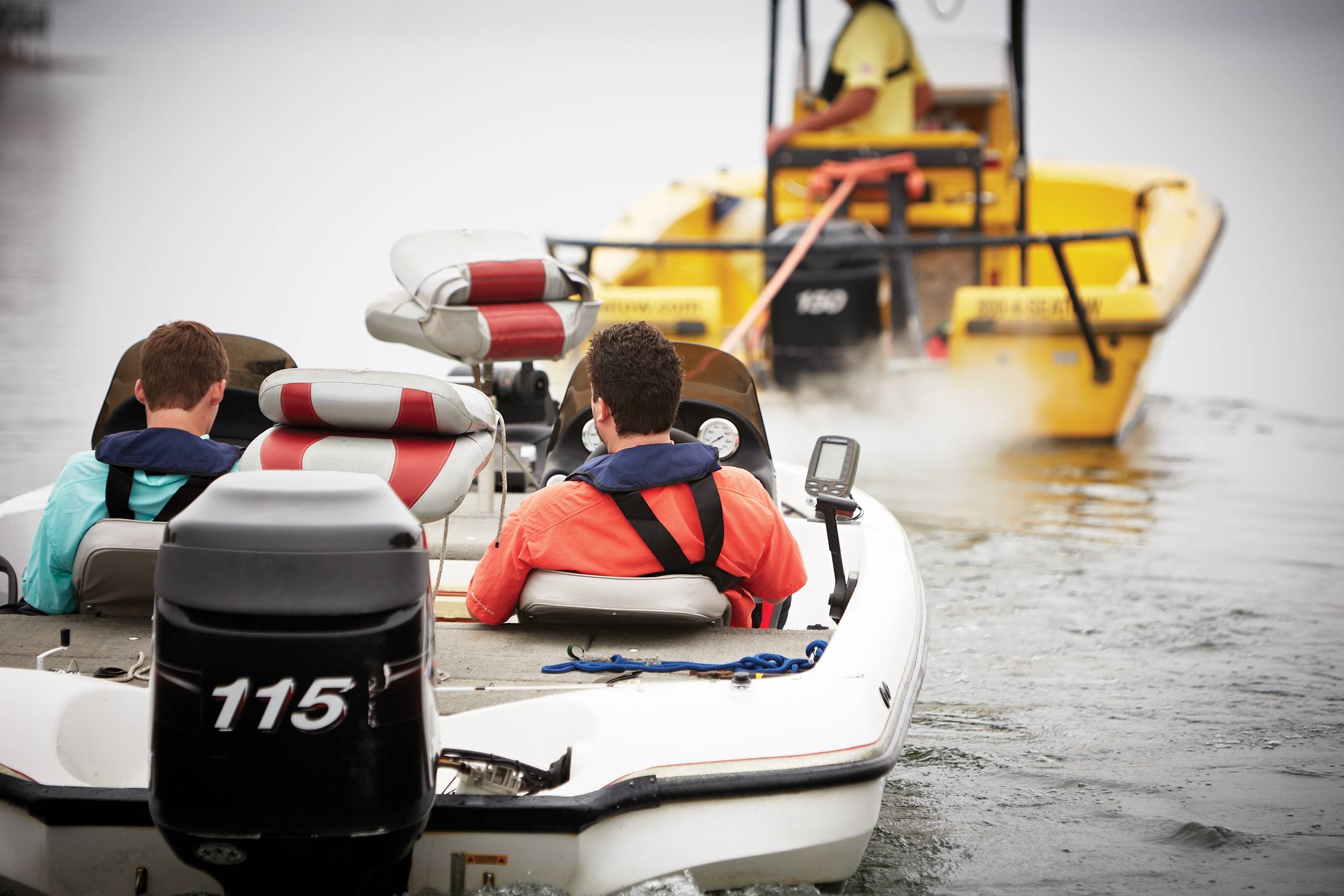
Enforcement and Penalties
In Florida, enforcement of boating laws and regulations is carried out by various entities, including the Division of Law Enforcement of the Fish and Wildlife Conservation Commission, county sheriffs and their deputies, and local police officers. These authorities are responsible for ensuring that boaters comply with the state's laws governing vessel operation, safety, and equipment requirements.
One of the primary concerns in boating safety is alcohol consumption and boating under the influence (BUI). In Florida, it is illegal to operate a vessel while impaired by alcohol or other drugs. Authorities may conduct sobriety tests on boat operators suspected of being under the influence, and those found with a blood- or breath-alcohol content of 0.08% or higher may be charged with a BUI.
Penalties for boating under the influence vary depending on the severity of the offense and the number of prior convictions. Fines for first-time offenders can range from $500 to $1,000, while repeat offenders may face fines of up to $4,000. In addition to fines, boaters convicted of BUI may be required to complete mandatory violator education courses. In some cases, a BUI can be classified as a first-degree misdemeanor, leading to more severe consequences, including possible imprisonment.
Florida's boating laws also classify certain offenses as non-criminal boating safety infractions, resulting in penalties that typically involve fines and mandatory education courses. These infractions can include, but are not limited to, failure to have the appropriate safety equipment on board, operating a vessel in restricted areas, or violating speed limits.
For more serious criminal boating violations, such as reckless operation or causing harm to other individuals, penalties may include significant fines, the suspension or revocation of a boater's privileges, and potential imprisonment.
It is essential for boaters in Florida to familiarize themselves with the state's boating laws and regulations to ensure the safety of everyone on the water and to avoid the financial and legal consequences of noncompliance. Staying informed and practicing responsible boating can help prevent accidents, promote a safe boating environment, and ultimately contribute to a more enjoyable experience for everyone on Florida's waterways.
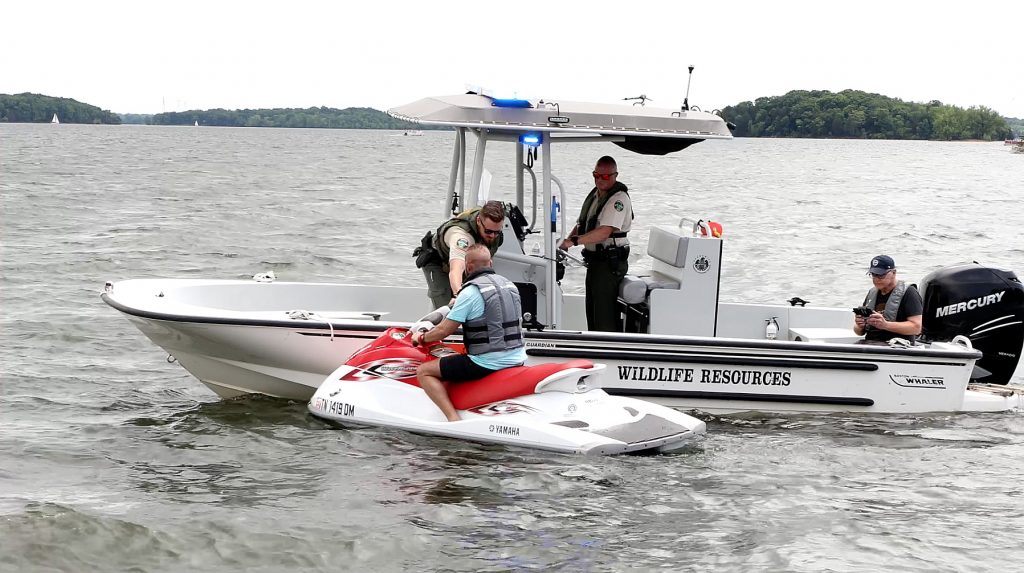
Accidents and Emergencies
In Florida, it is essential for boat operators to be prepared for accidents and emergencies while navigating the waters. Boaters should always have the appropriate safety equipment and knowledge to handle various situations that may arise, from minor incidents to more severe cases resulting in property damage, injuries, or even death.
One of the main requirements for boat operators in Florida is to have the necessary safety equipment onboard. This includes having at least one wearable USCG-approved personal flotation device (PFD) per person aboard and one USCG-approved throwable Type IV PFD if the vessel is longer than 16 feet. These PFDs are crucial for ensuring the safety of everyone on board in case of an emergency in the water.
In the event of a reportable boating accident, which is defined as an occurrence causing damage to property, injury, or death, Florida law requires boat operators to take specific actions. These include providing assistance to any injured person to the extent that they can do so without risking their own safety or that of others. Additionally, operators are required to immediately report the accident to the Florida Fish and Wildlife Conservation Commission (FWC) or other relevant authorities.
Boat operators must also exchange information with the other party involved in the accident. This information includes the names, addresses, and boat registration numbers of both parties.
As a boat operator in Florida, it is crucial to remain confident, knowledgeable, and clear when facing accidents and emergencies. Familiarizing oneself with the state's boating laws and regulations can ensure that you are prepared to handle any situation that may arise while on the water. Remember, it is always better to prevent accidents through careful planning and adherence to safety guidelines than to deal with the consequences of an avoidable incident.
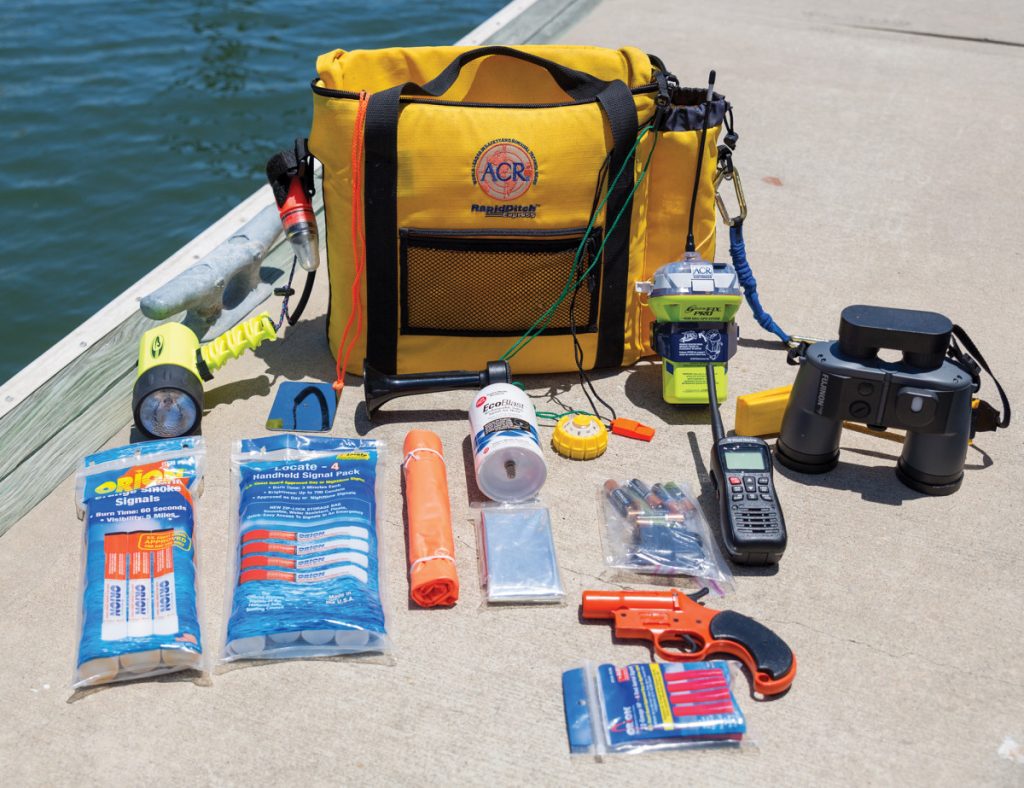
Additional Provisions
According to Florida law, several requirements and provisions must be met aboard a vessel, including appropriate safety equipment and regulations in the operation of personal watercraft. In Chapter 327 of Florida Statutes, the law specifies that all vessels must have a whistle or horn on board source. Additionally, the law mandates that safety equipment varies depending on the size of the vessel, which is detailed by the Florida Fish and Wildlife Conservation Commission.
Vessel operators must possess photographic identification and either a Boating Safety Education Identification Card issued by the Florida Fish and Wildlife Conservation Commission or a temporary certificate, Canadian Pleasure Craft Operator Card, or possess a valid equivalent certification from another state source. The temporary certificate can be obtained after passing a Temporary Certificate Examination.
In cases of reduced visibility caused by weather conditions such as rain, fog, or haze, vessel operators must navigate at a safe speed to prevent collisions. The United States Coast Guard and the National Association of State Boating Law Administrators set guidelines for vessel lighting and safety equipment to be used during these conditions source.
When it comes to operating personal watercraft, such as jet skis, the law requires that the operator must wear a personal flotation device approved by the United States Coast Guard, and a lanyard-type engine cutoff switch must be attached to the operator's person, clothing, or personal flotation device source. In addition, it is crucial to operate the watercraft in a courteous manner and avoid disrupting other boaters or anglers.
Florida law also emphasizes the protection of wildlife, such as manatees, in its boating regulations. Boaters must follow posted speed limits and closely adhere to signs indicating the presence of manatees. Moreover, boating under the influence (BUI) of alcohol or other substances is illegal and carries strict penalties, including fines, imprisonment, or both source.
Divers-down warning devices, such as flags or buoys, should be displayed when diving activities are taking place. Boaters are required to stay at least 100 feet away from these markers in rivers, inlets, and channels, and 300 feet away in open coastal waters source. Lastly, reckless operation of a vessel is not permitted and can result in penalties.
Overall, Florida laws aim to ensure the safety of vessel operators, passengers, and wildlife by enforcing regulations on equipment, operation, and compliance with established guidelines.
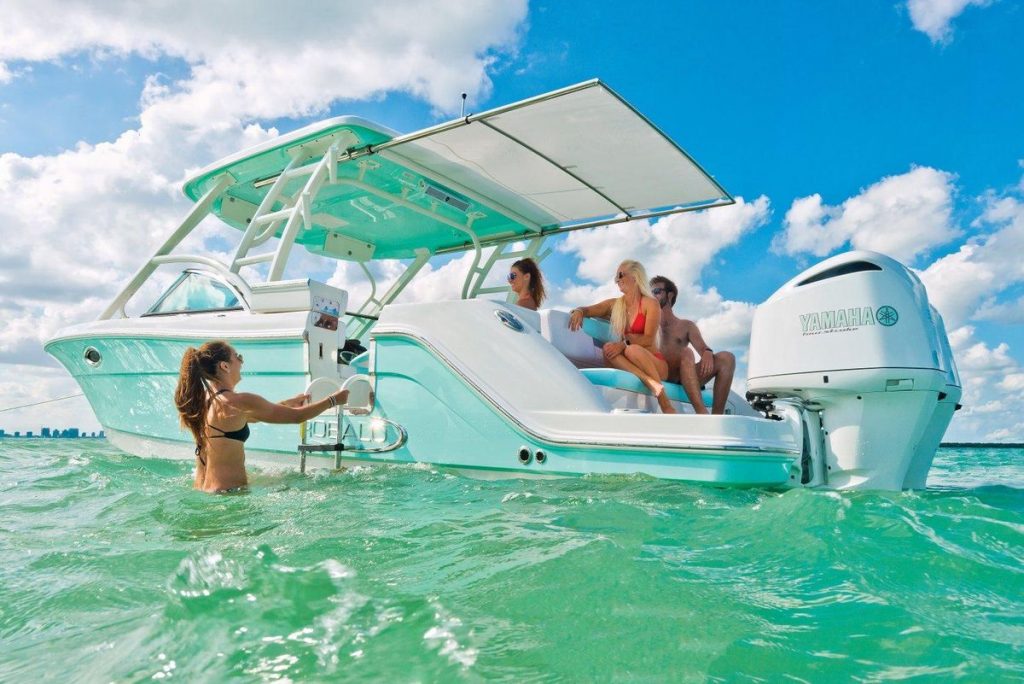
Frequently Asked Questions
What safety equipment is mandatory on a Florida vessel?
In Florida, safety equipment requirements vary depending on the size of the vessel. For vessels 16 to 26 feet, every person on board under the age of 6 must wear an approved Type I, II, or III personal flotation device (PFD) while the vessel is underway. Water skiers must also wear an approved PFD, with inflatable PFDs being prohibited. A fire extinguisher is also required FWC.
What are the PWC passenger requirements in Florida?
Personal Watercraft (PWC) operators must be at least 14 years old in Florida. In addition, it is unlawful for anyone operating or riding on a PWC to knowingly allow a person under the age of 14 to operate a PWC. All PWC passengers should wear an approved PFD and follow all applicable safety regulations.
What should operators do in a head-on situation between two powered vessels?
When two powered vessels encounter a head-on situation, both vessels should alter their course to starboard (right) to avoid a collision. This rule applies to vessels in Florida waters, as well as in other jurisdictions, as it is an internationally recognized rule under the International Regulations for Preventing Collisions at Sea (COLREGS).
When is a vessel's registration certificate required to be onboard in Florida?
In Florida, a vessel's registration certificate must be carried onboard anytime the vessel is being operated on state waters. The registration certificate serves as proof of the vessel's current registration, expiration date, and other important information FWC.
What are the requirements for towing a water skier in Florida?
When towing a water skier in Florida, the vessel operator must ensure that an observer is present onboard, in addition to the operator, to keep an eye on the skier at all times. Alternatively, a rearview mirror may be used if it provides a clear view of the skier. The water skier must also wear an approved PFD.
Which safety item is required on a 15-foot boat in Florida?
On a 15-foot boat in Florida, one of the essential safety items required is a personal flotation device (PFD) for each person onboard. It is crucial to have enough PFDs for all passengers, ensuring that they are the correct size and in good condition. Other safety items may also apply depending on the specific boat and its use.
Charlie is Editor-in-Chief of Sea Magazine